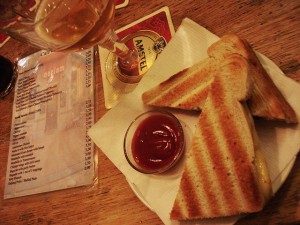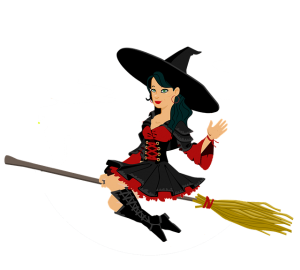sleeve ![]()
[noun]
[de mouw, de mou-wen]
A "mouw" is a sleeve. A "mouw" can be "kort" (short) of "lang" (long).
Examples:
– "Kijk! Er zit een lieveheersbeestje op je mouw!"
("Look! There is a ladybird on your sleeve!")
– "De mouwen van deze trui zijn te lang."
("The sleeves of this sweater are too long.")
– "Hoe is het weer vandaag? Zal ik iets met korte of lange mouwen aantrekken?"
("How’s the weather today? Shall I wear something with short or long sleeves?")
Expressions:
– "Daar valt wel een mouw aan te passen": we’ll manage somehow. Lit.: There’s probably a sleeve that can be adjusted.
– "Iemand iets op de mouw spelden": to tell someone a small (lie). Lit.: to pin something on one’s sleeve.
– "Uit de mouw schudden": to come up with something just like that. Lit.: to shake out of the sleeve.
Example:
– "Sander schudt moppen zo uit zijn mouw…echt grappig!"
("Sander comes up with jokes just like that…really funny!")
– "De handen uit de mouwen steken: to put one’s shoulder to the wheel. Lit.: to stick one’s hands out of the sleeves.
– "Daar komt de aap uit de mouw": the truth is revealed, the real intentions become clear. Literally: comes the monkey out of the sleeve.
Related words:
– Kort: short [adjective].
– Lang: long [adjective].
– Manchet: cuff [noun] [de manchet, de manchetten].
– T-shirt:T-shirt [noun] [het T-shirt, de T-shirts].
– Trui: sweater, jumper [noun] [de trui, de truien].
– Kleren: clothes [noun] [<no singular>, de kleren].
Extra:
Don’t confuse the noun "mouwen" (sleeves) with the verb "mauwen", which translates to "to meow" (the sound made by a cat), which also can be used figuratively: to whine. You may also see "miauwen", which also translates to "to meow", but which doesn’t have the figurative meaning.


 There’s not really an equivalent in English for “tosti”. In French, there is, though: “croque-monsieur”. “Tosti” apparently originates from the Italian “tosto” (from which “tosti” is the plural form), which is short for “tostato”, which is the past particple of “tostare”: to toast.
There’s not really an equivalent in English for “tosti”. In French, there is, though: “croque-monsieur”. “Tosti” apparently originates from the Italian “tosto” (from which “tosti” is the plural form), which is short for “tostato”, which is the past particple of “tostare”: to toast. “Toveren” is often used in its literal sense: witches and sorcerers do it all the time 🙂 It can also be used when someone does something which seems impossible.
“Toveren” is often used in its literal sense: witches and sorcerers do it all the time 🙂 It can also be used when someone does something which seems impossible. The verb “aangaan” is mostly used in the translation of “to be switched/turned on” or “to be activated”. But as always there is a completely different meaning, in this case “to concern”. “Dat gaat je niets/niks aan” can therefore also be translated with “that does not concern you”. Of course you can create your own variation of the phrase, see the Examples.
The verb “aangaan” is mostly used in the translation of “to be switched/turned on” or “to be activated”. But as always there is a completely different meaning, in this case “to concern”. “Dat gaat je niets/niks aan” can therefore also be translated with “that does not concern you”. Of course you can create your own variation of the phrase, see the Examples.